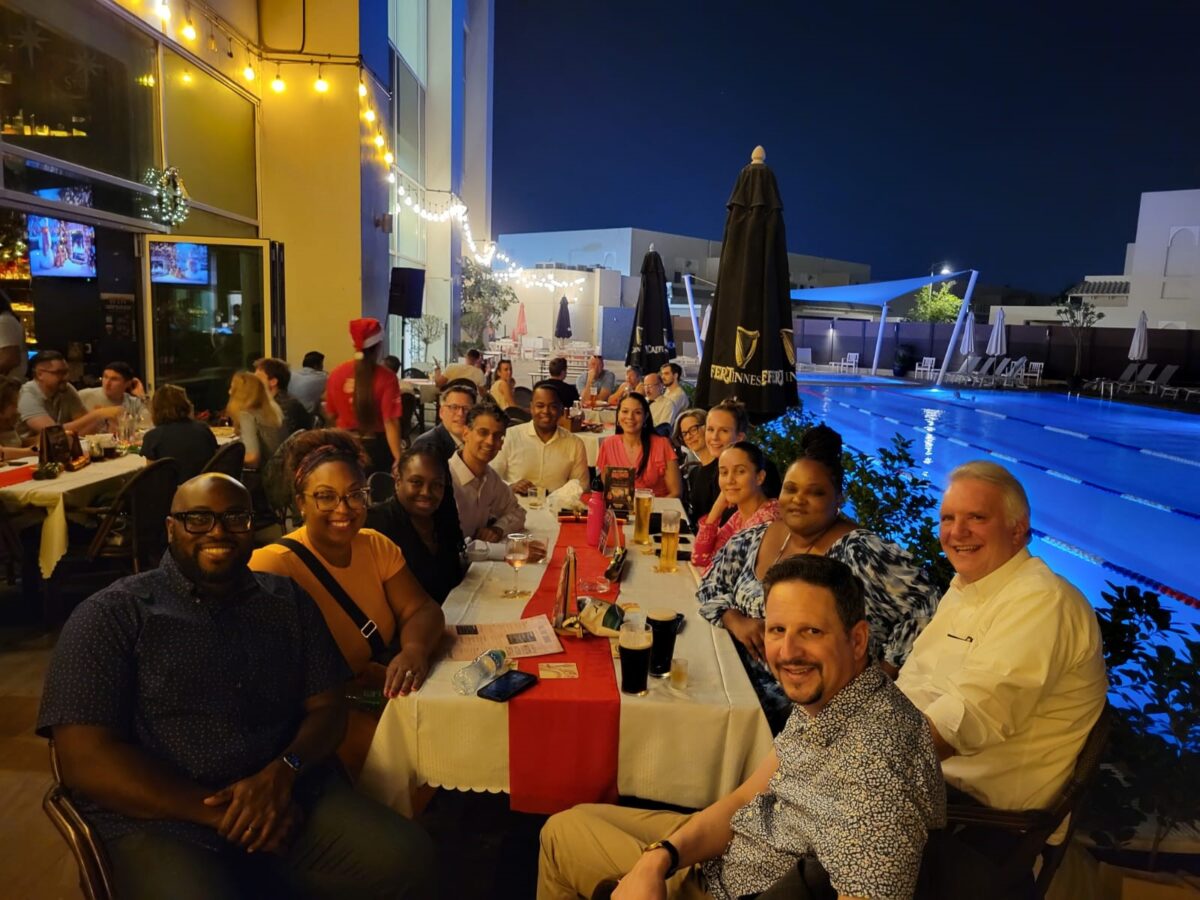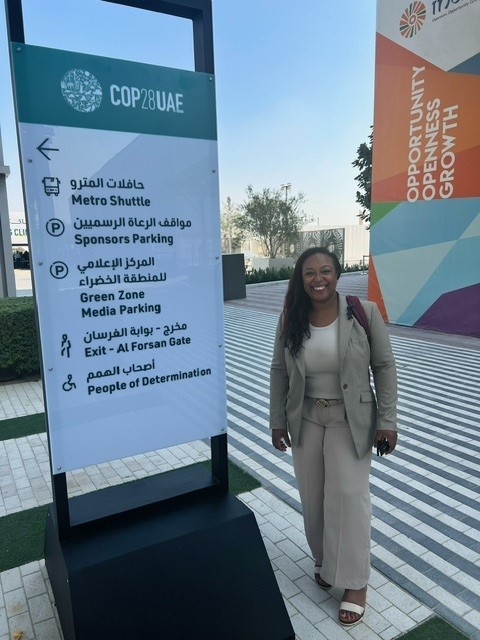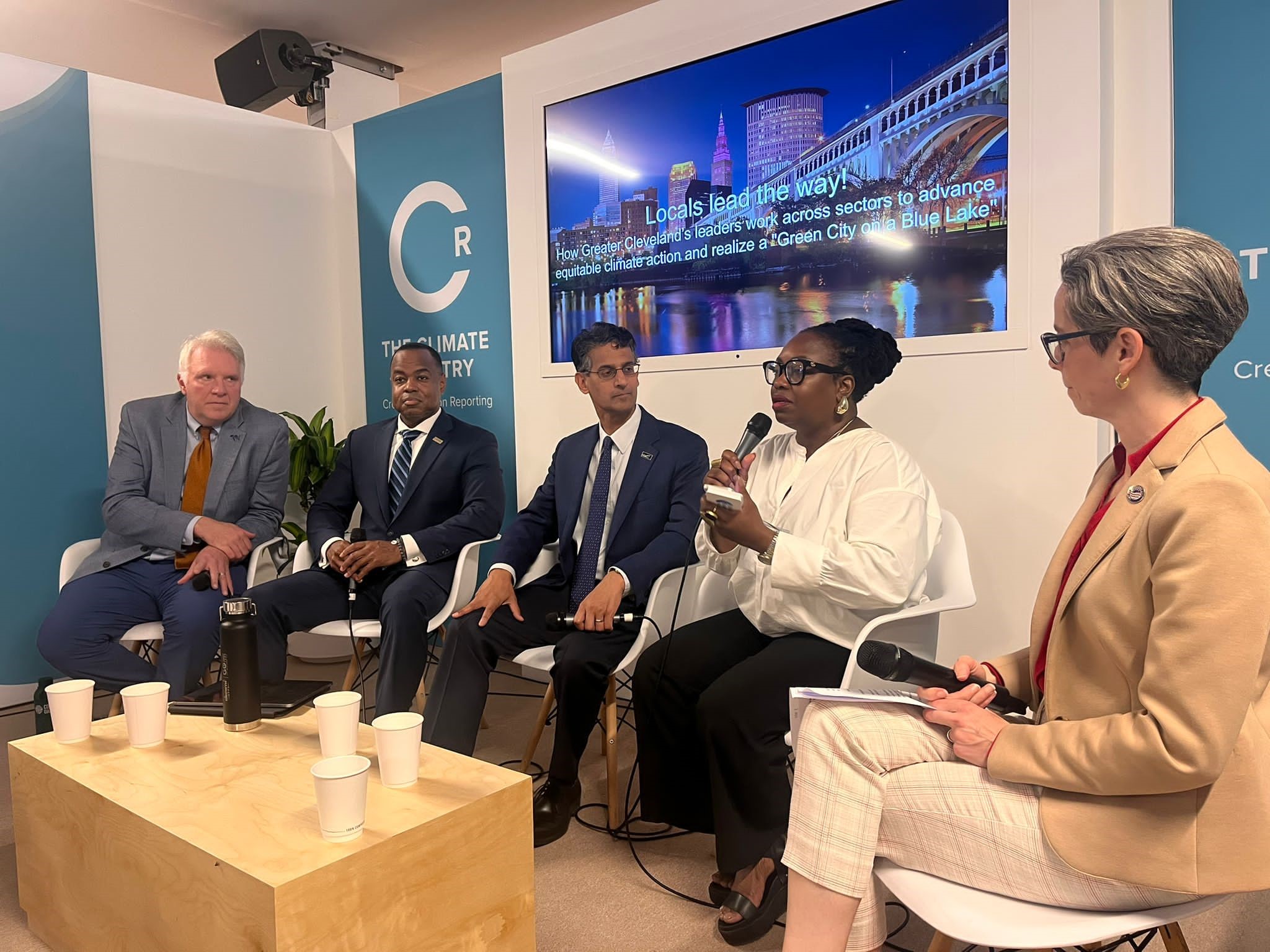Note: This blog was written by Vice President of Policy and Strategic Engagement Crystal M.C. Davis.

Attending the COP28 UN Climate Change Conference in Dubai was an incredible experience, one that I was fortunate to be a part of thanks to the Black Environmental Leaders Association (BEL). As a founding member and board member, it was amazing to see how the organization’s support brought our mission to a global stage, showing just how far our collective efforts in environmental advocacy can reach.
Celebrating the Role of Black Environmental Leaders
Our delegation’s presence at COP28 was a testament to the organization’s commitment to environmental advocacy and its impact on a global scale. I was privileged to represent not only the Alliance for the Great Lakes but also the voices and perspectives that BEL leaders bring to the forefront of environmental justice.
Global and Local Interplay: Understanding Our Collective Impact

At COP28, the interconnectedness of local and global environmental efforts became increasingly clear. The insights I gained there have deepened my understanding of how our regional work across states and cities aligns with national and global environmental initiatives. It’s evident now more than ever that our individual efforts have profound global implications. This revelation was a recurring theme throughout the conference, emphasizing the significant impact of water stewardship and innovation on a global scale. COP28 was not just about global dialogues; it was about finding local relevance in these discussions. The insights gained from the conference will be instrumental in shaping our approach to water and climate issues in the Great Lakes region. The shared knowledge and strategies from the global stage will help us develop more effective local solutions.
Water Stewardship: An Economic Imperative
The conference illuminated an essential truth: water stewardship and innovation are not only environmental responsibilities but also make sound economic sense. This alignment of environmental, racial, health, and economic justice was a key focus, with several sessions exploring the financial aspects of climate action. The discussions at COP28 reinforced the notion that environmental conservation is intrinsically linked to broader economic strategies.

The Alliance for the Great Lakes: Bridging Justice and Environmental Action
At the Alliance for the Great Lakes, we’ve recognized the intertwined nature of environmental, racial, health, and economic justice. COP28 served to reaffirm this understanding, highlighting how environmental initiatives, especially those focused on water, are crucial in building a just and sustainable economic future. Our commitment to these principles was echoed in the global discourse at the conference, reinforcing the value and urgency of our work.
Forward with Renewed Vision
Reflecting on the experiences and lessons from COP28, I am filled with a renewed sense of purpose and clarity. As we move forward, the Alliance for the Great Lakes is more equipped than ever to play a pivotal role in fostering environmental justice and economic sustainability, both regionally and globally.
Together, we are making strides toward a future where environmental stewardship and economic progress go hand in hand.
